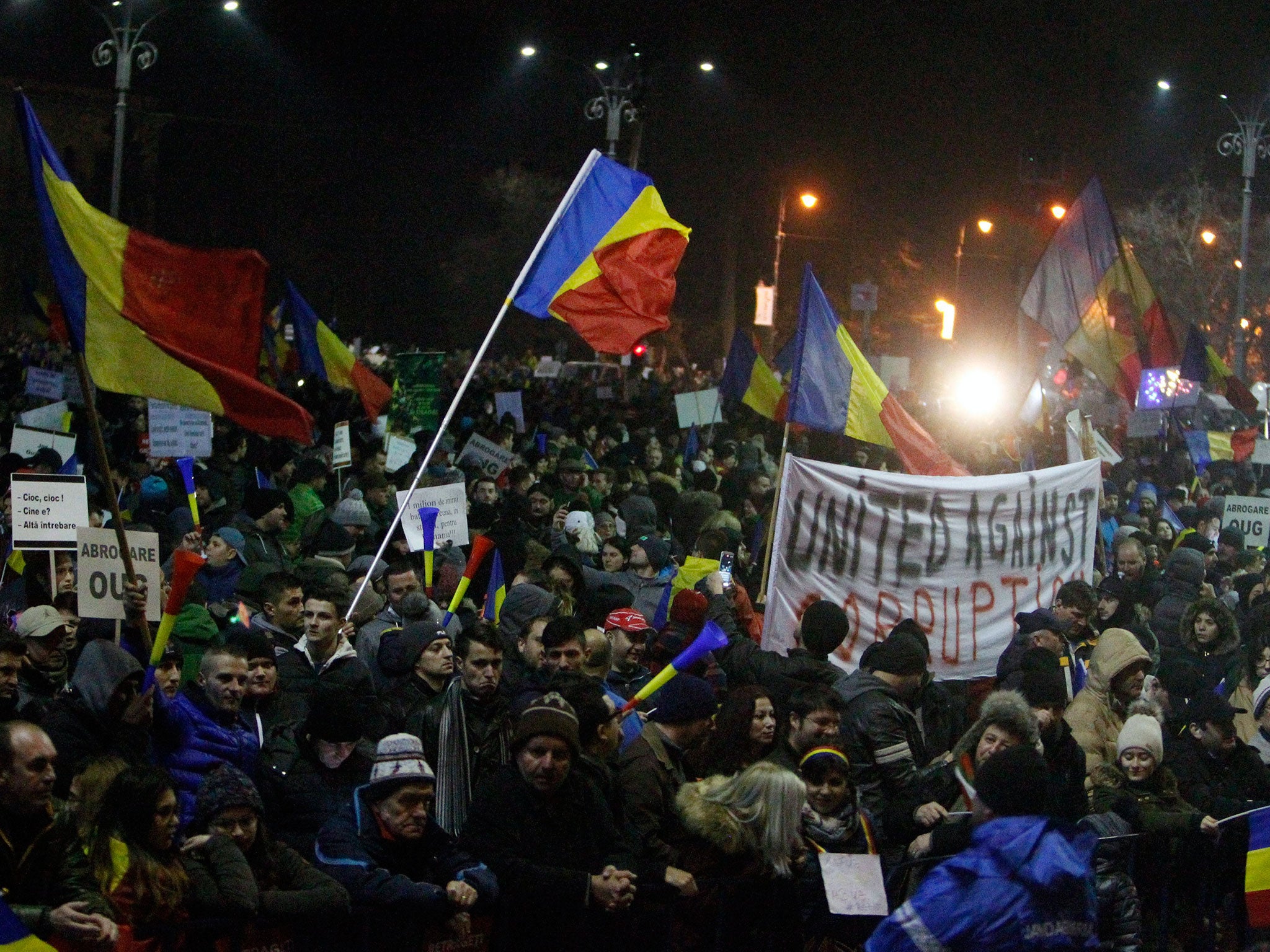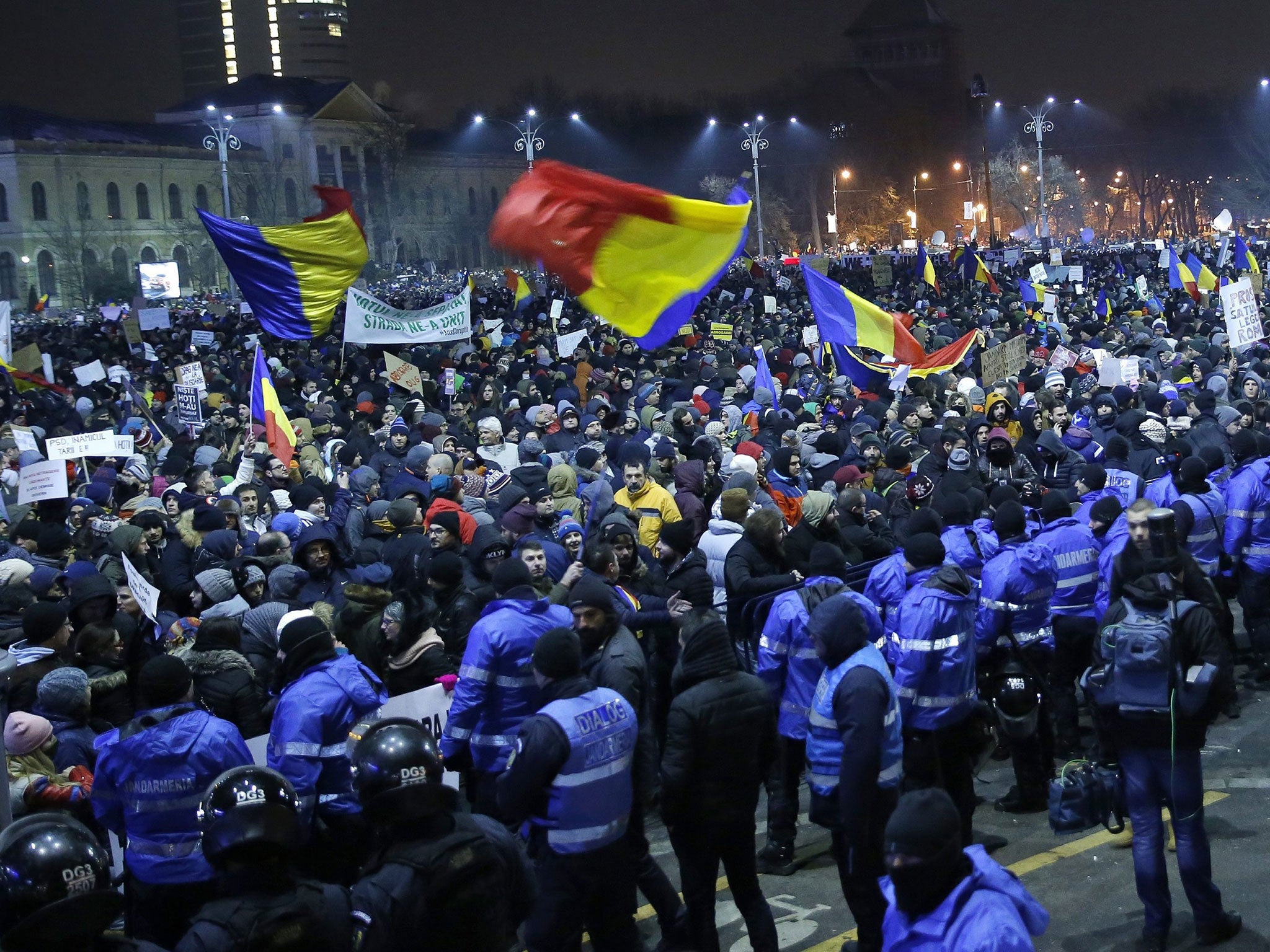Romanian government scraps controversial corruption decree after thousands join days of mass protest
Thousands joined days of huge demonstrations across the country against law

Your support helps us to tell the story
From reproductive rights to climate change to Big Tech, The Independent is on the ground when the story is developing. Whether it's investigating the financials of Elon Musk's pro-Trump PAC or producing our latest documentary, 'The A Word', which shines a light on the American women fighting for reproductive rights, we know how important it is to parse out the facts from the messaging.
At such a critical moment in US history, we need reporters on the ground. Your donation allows us to keep sending journalists to speak to both sides of the story.
The Independent is trusted by Americans across the entire political spectrum. And unlike many other quality news outlets, we choose not to lock Americans out of our reporting and analysis with paywalls. We believe quality journalism should be available to everyone, paid for by those who can afford it.
Your support makes all the difference.After mass protests that have rocked the country for days, Romania's government has announced that it will repeal a highly controversial emergency decree that decriminalises official misconduct.
Prime Minister Sorin Grindeanu said the government would hold an emergency meeting on Sunday to withdraw the decree, which has sparked the biggest protests in Romania since the end of communism in 1989.
“I don't want to divide Romania... Romania in this moment seems broken in two,” Mr Grindeanu told reporters.

Protesters were angry that the measure would water down the country's fight against corrupt officials. Tens of thousands took to the streets for the fifth consecutive day on Saturday, marching through Bucharest and forming a human chain around the Palace of the Parliament built by the late Communist leader Nicolae Ceausescu.
There were also large-scale protests in the cities of Cluj, Timisoara, Sibiu, Constanta and Brasov and more planned for Sunday.
The Social Democrat-led coalition government has come under huge pressure at home and abroad to repeal the emergency decree it passed on Wednesday without parliament input, which critics say will drastically weaken an anti-corruption fight widely praised by Romania's Western allies.
Mr Grindeanu said the proposal would be sent to parliament for debate, a move that is not likely to appease all protesters.
One protester, Florin Dutu of Bucharest, said he wasn't totally satisfied with the development but said it was important that government understood the determination of the people.
“Romania is a strong democracy. People are on the streets and you cannot avoid doing the right thing,” he said.
People came to the protest in Bucharest stressing the peaceful nature of the rally to fight corruption.
Cristian Busuioc came with his 11-year-old son. “I want to explain to him...what democracy means, and the way the ones who govern must create laws for the people and not against them or in their own interest,” he said.
Presidential spokeswoman Madalina Dobrovolschi called the development “a step toward normality.”
The Constitutional Court was expected to rule next week on whether the measure violates the constitution.
The ordinance decriminalises official misconduct if the funds involved are less than 200,000 lei (£38,200), which critics said would just encourage officials to steal on the job up to that point. Mr Grindeanu said he would consult with other parties about scrapping the monetary threshold.
Liviu Dragnea, head of Social Democrats, is one of those who would have benefited from the new decree. He is banned by law from serving as prime minister because he was handed a two-year prison sentence in April 2016 for vote-rigging.
Associated Press
Join our commenting forum
Join thought-provoking conversations, follow other Independent readers and see their replies
Comments